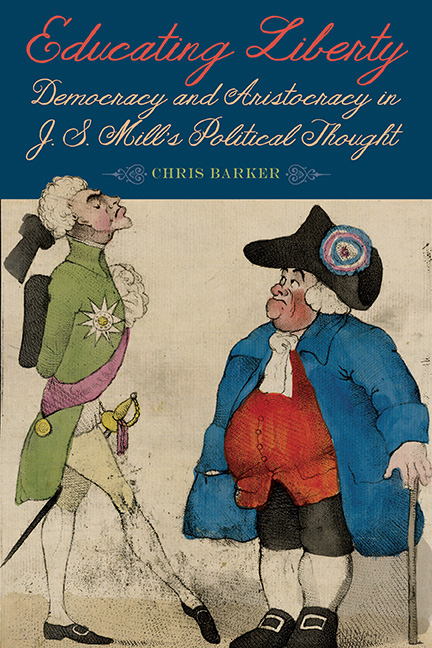4 - Mass and Elite Politics
Published online by Cambridge University Press: 24 July 2019
Summary
The preceding chapters have focused on cooperation in the production of children, the production of goods, and the production of knowledge. In each area, creating subordination in cooperative relationships for the sake of greater efficiency and rationality is a danger. For example, Mill argues that even educational paternalism would “probably” lead to a worse form of government than military dictatorships or economic oligarchies. It is ironic that we see a practical example of this paternalism in British India, where Mill thinks that the law of stages justifies the East India Company's despotism despite evidence that the company's rule was in some respects more oppressive than any indigenous equivalent.
This chapter and the next examine the production of obedience and loyalty in the domains of representative government and civic religion. In these areas, the challenge is not the eighteenth century problem with the few (the adult male in the household, the owner and manager, the expert and scientist) but the power of the many. As noted in the introduction, Mill believes that in the late modern social state, the power of masses is starting to predominate over that of individuals and elite groups. Although mass participation may typically advance mass cultivation and Mill's “principles of individual freedom and political and social equality,” artificial means of balancing the powers of masses and elites are needed. The answer is representative government, albeit of an unusual and challenging sort.
In Mill's description, representative government is a system where the “whole people, or some numerous portion of them, exercise through deputies periodically elected by themselves, the ultimate controlling power, which, in every constitution, must reside somewhere.” Mill's theory is not only a mechanical theory of checks and balances but also a dynamic theory that adjusts a constitution to keep up with a changing and evolving society. Thus, Mill's theory is neither wholly conservative nor wholly progressive, just as it is neither wholly popular nor aristocratic, nor entirely normative nor descriptive. What Mill seeks is not a mixed constitutionalism, or popular constitutionalism, or even (as he is sometimes misunderstood to favor) elite constitutionalism, but balance. In a balanced political association, political participation is an education in moderation, compromise, and reasonableness.
- Type
- Chapter
- Information
- Educating LibertyDemocracy and Aristocracy in J. S. Mill's Political Thought, pp. 116 - 154Publisher: Boydell & BrewerPrint publication year: 2018



